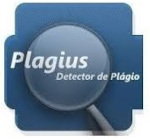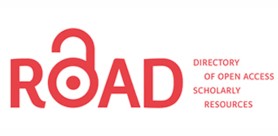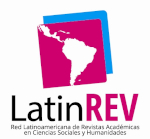SCHOOL EDUCATION AND THE ENVIRONMENT: an analysis from High School Students and Teachers
DOI:
https://doi.org/10.47180/omij.v1i1.17Keywords:
Environmental Education, Public school, Teaching-LearningAbstract
Understanding that school is a socialization environment, where individuals are prepared not only for the job market, but mainly for life in society, also understanding environmental preservation as something extremely important in order to guarantee the survival of the current and for future generations, we decided to carry out this work, with which it was intended to know the attention given by teachers and students on Environmental issues. In this context, the present study aimed to investigate the way the environmental issue is dealt with in an educational institution in the city of Monteiro-PB. The study in question was an exploratory research with a qualitative and quantitative approach with content analysis technique. The work was carried out in a State High School in Monteiro-PB with students and with teachers of biology and geography of the classes of the 30 year “A” and “D” of high school, in a State School in the city of Monteiro-PB, Brazil. In this study it was found that the students' understanding of the concept of the Environment was fragile, superficial, not consistent with the learning of students in the 3rd year of high school. Therefore, even though students have access to information and are aware of their actions, they are not sensitized to put into practice what has been learned.
Downloads
References
BRASIL. Parâmetros Curriculares Nacional: temas transversais. Brasília: MEC, 1996.
BRASIL. Conselho Nacional de Educação (CNE). Resolução n. 3, de 26 de junho de 1998. Institui as Diretrizes Curriculares Nacionais para o Ensino Médio. Diário Oficial da República Federativa do Brasil, Brasília, DF, 5 ago. 1998a.
BRASIL. Conselho Nacional de Educação (CNE). Parecer n. 15, de 1 de junho de 1998. Diretrizes Curriculares Nacionais para o Ensino Médio. Brasília, DF, 1998b.
BRASIL. Lei 9795 que dispõe sobre a educação ambiental. Brasília-DF: DOU, 27/04/1999.
BRASIL. Ministério da Educação. Orientações curriculares do ensino médio. Brasília, DF, 2000.
BRASIL. Ministério da Educação e cultura. Parâmetros Curriculares Nacional, disponível em:<http://portal.mec.gov.br/index.php>. Acesso em: 10 dez. 2015
CARVALHO, I. C. M. Educação Ambiental: Formação do Sujeito Ecológico. São Paulo. Cortez. 2008.
DIAS, G. F. Educação Ambiental: Princípios e Práticas. 5. ed. São Paulo; Gaia, 2003.
DURKHEIM, E. Educação e sociologia. 7. ed. São Paulo: Melhoramentos, 1978.
FAZENDA, I. C. A. Interdisciplinaridade: história, teoria e pesquisa. 14. ed. Campinas: Papirus, 2007.
FREIRE, P. Pedagogia da Autonomia: saberes necessários à prática educativa.
São Paulo: Paz e Terra, 1996.
FREIRE, P. Pedagogia da autonomia: saberes necessários à prática educativa. 30. Ed. São Paulo: Paz e Terra, (Coleção Leitura). 1996.
GADOTTI, M. Perspectivas atuais da educação. Porto Alegre, Ed. Artes Médicas, 2000.
GUIMARÃES, M. A. Dimensão Ambiental Na Educação. Campinas, SP: Papirus, 1995 (Coleção Magistério: formação e trabalho pedagógico. 1995. 107 p.
HAGUETTE, T. M. F. Metodologias qualitativas na Sociologia. 3. ed.Petrópolis: Vozes, 2001.
KUENZER, A. Z. (Org.). Ensino Médio: construindo uma proposta para os que vivem do trabalho. São Paulo: Cortez, 2005.
LEFEVRE, F.; LEFEVRE, A. M. C. O discurso do sujeito coletivo: um novo enfoque em pesquisa qualitativa. Caxias do Sul: Educs, 2003.
LEFF, E. Educação ambiental e desenvolvimento sustentável. In.: REIGOTA, Marcos (org.). Verde cotidiano: o meio ambiente em discussão. DP&A. Rio de Janeiro: p.111- 129, 1999.
LIBÂNEO, J. C. Organização e gestão da escola: teoria e prática. 5. ed. revisada e ampliada. Goiânia-GO: Alternativa, 2004.
LOPES, P. R. et al. Diagnóstico socioambiental: o meio ambiente percebido por estudantes de uma escola rural de Araras (SP). Pesquisa em Educação Ambiental, [S.l.], v. 6, n. 1, p. 139-155, july. 2012.
MORIN, E. A cabeça bem-feita: repensar a reforma, reformar o pensamento. Trad.: Eloá Jacobina. 7a ed. Rio de Janeiro: Bertrand Brasil, 2002.
MOREIRA, A. F. Ambientes de Aprendizagem no Ensino de Ciência e Tecnologia.
Belo Horizonte: CEFET-MG, Notas de aula, 2007.
MORENO, M. Temas Transversais: um ensino voltado para o futuro. 4. Ed. SP: Ática, 2000.
OLIVA, J. M. El Pensamiento Analógico desde la Investigación Educativa y desde la Perspectiva del Profesor de Ciências. Revista Electrónica de Enseñanza de las Ciencias, v. 3, n.3. 2005.
PEDRINI, A. G. Educação Ambiental: reflexões e práticas contemporâneas. 5. ed. ed. Petrópolis Vozes, 1997.
PILETTI, C. Filosofia da educação. São Paulo: Ática,1998.
REIGOTA, M. A. S. Ciência e Sustentabilidade: a contribuição da educação ambiental.
Avaliação (Campinas), v. 12, jun., 2007.
SEGURA, D.S.B. Educação ambiental na escola pública: da curiosidade ingênua a consciência crítica. São Paulo. Annablume, 2001.
SILVA, R. C. R. et al. Nível de atividade física em adolescentes do Município de Niterói, Rio de Janeiro, Brasil. Cadernos de Saúde Pública, Rio de Janeiro, v. 16, n. 4, p. 1091-1097, 2009.
SOUSA, P. R. PCN Ensino Médio. 1999.
VASCONCELLOS, H. S. R. A pesquisa-ação em projetos de Educação Ambiental. Petrópolis, Vozes, 1997.
Downloads
Published
How to Cite
Issue
Section
License
The authors declare that any work submitted, if accepted, will not be published elsewhere, in English or in any other language, and even electronically, unless it expressly mentions that the work was originally published in the Journal.













